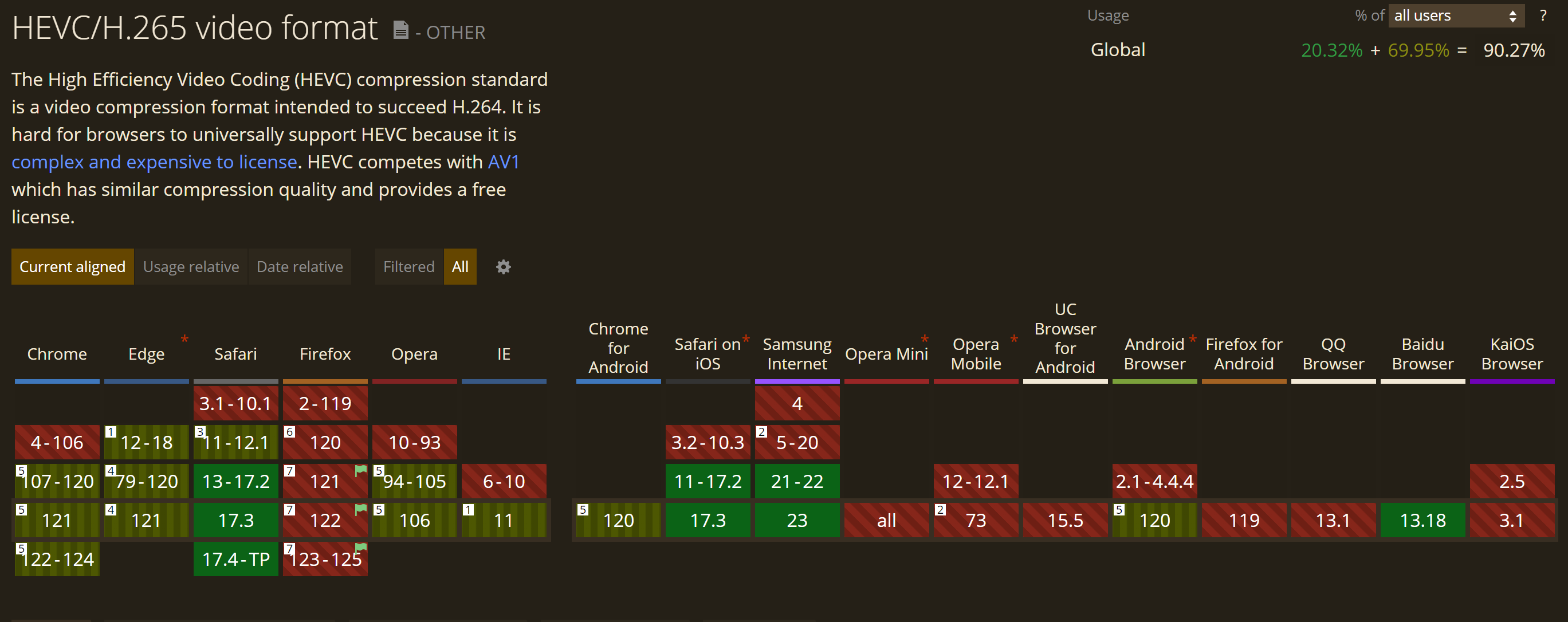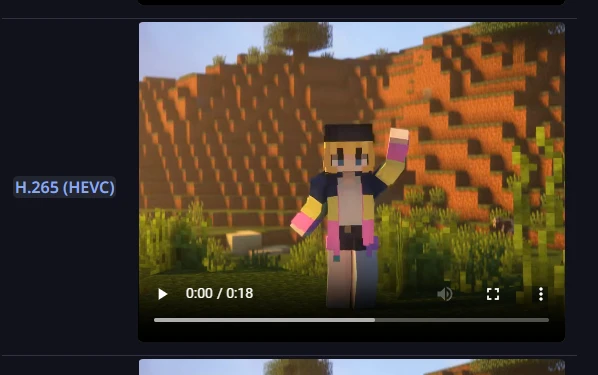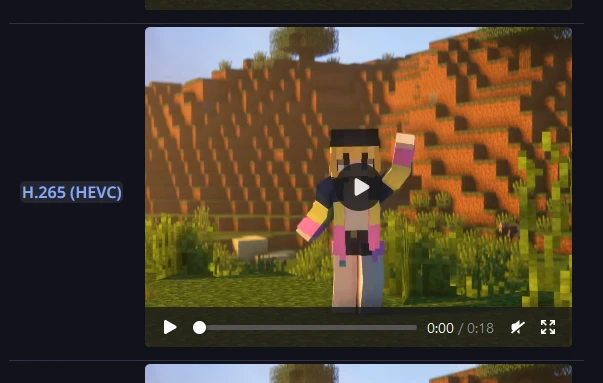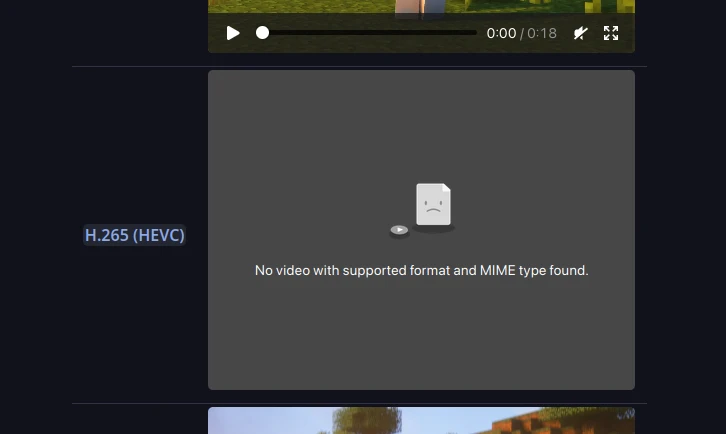As of 28th of January, 2024, these are only handful of browsers that support playing back HEVC, like shown in this pic from CanIUse.com.

Safari
While Safari has native & enabled right out of the box (OOB) support, it doesn’t behave how you might normally think.
- It demands specific Codec ID.
- It plays back videos that only have 4:2:0 chroma subsampling. Source: discussions.apple.com
Codec ID
For the Codec ID, it’s as simple as tagging the video via ffmpeg:
-tag:v hvc1 …but website also needs to specify the file is the correct codec, like :
<video id="video2" controls width="512">
<!-- Other browsers -->
<source src="/_media/test_video-codecs/site_support_02_HEVC.mp4" type='video/mp4'>
<!-- Safari -->
<source src="/_media/test_video-codecs/site_support_02_HEVC.mp4" type='video/mp4; codecs="hvc1"'>
<!-- Error message? -->
Huh
</video>Chromium-based browsers
Chromium-based browsers as of late 2022 added support for hardware-accelerated HEVC decoding. Compared to Safari however, it seems it doesn’t like to playback specifically-tagged in HTML content, but without tag in HTML, it will playback just fine.
Re-test
<video id="video2" controls width="512">
<!-- Other browsers -->
<source src="/_media/test_video-codecs/site_support_02_HEVC.mp4" type='video/mp4'>
<!-- Safari -->
<source src="/_media/test_video-codecs/site_support_02_HEVC.mp4" type='video/mp4; codecs="hvc1"'>
<!-- Error message? -->
Huh
</video>
State of Chromium-based browser on Windows as of 11th of July, 2024
Firefox
on Windows
Windows users can enable HEVC support, with some caveats.
Supported for devices with hardware support (the range is the same as Edge) on Windows only. Enabled by default in Nightly and can be enabled via the
media.wmf.hevc.enabledpref inabout:config. 10-bit or higher colors are not supported.

State of HEVC on Windows as of 11th of July, 2024
on everything else
Linux and other users are out of luck, for now, see following:
MARKED AS RESOLVED, WONTFIX
Source: bugzilla.mozilla.org
The reason we won’t support H265 has nothing to do with the difficulty in finding a decoder, or that a decoder source code is released under GPL. Those are trivial matters.
[…]
We will not support h265 video while its patent encumbered.
[…]
I suggest you research about the h265 patent pools and the licensing model in use.

State of HEVC on Linux as of 28th of January, 2024
Conclusion
:4ktroll: